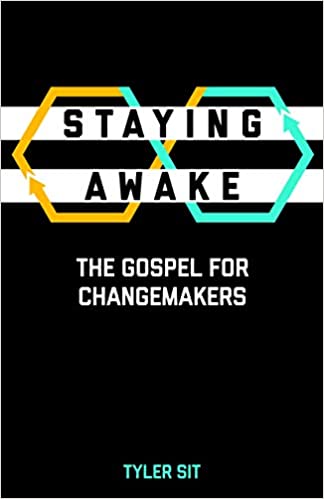
Featured Book for June 2022
Jesus asks his followers to stay awake, which begs the question: stay awake to what?
Staying Awake is a practical exploration of Christianity for people who want to show up for justice and stay in the movement. Discover nine essential practices to transform you for transforming the world. Complete with stories, worksheets, poetry, original cartoons, and a commitment to centering queer people of color, this book is here to support you in staying awake: to God, to the evils of oppression, and to the world’s coming liberation.
Staying Awake Community Questions by Claudia Love Mair